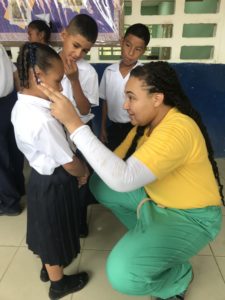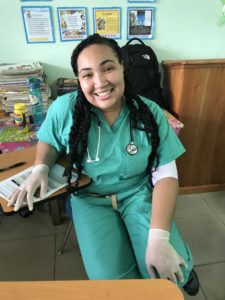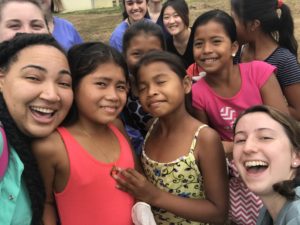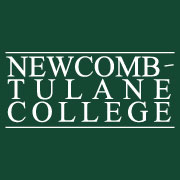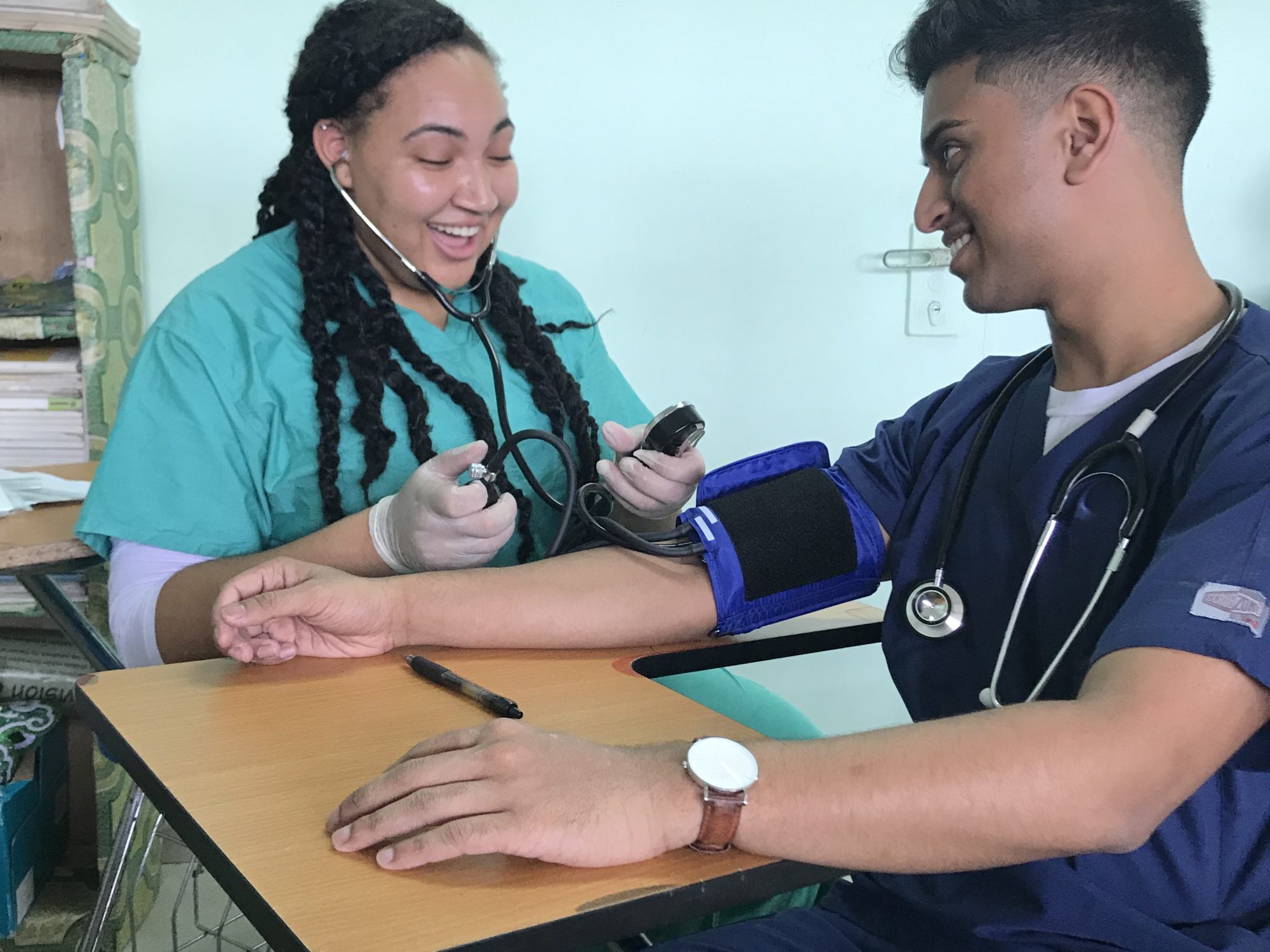“¡Hola! Como está usted?” I asked the man as he sat down in the school desk across from me. I had on latex gloves, bright green scrubs, a blood pressure monitor, and a mind determined to give him the best care I could. He responded with a smile, “Muy bien”, and a nod, indicating that though we were from two different places and of two different cultures, we could still find a similarity between us. After taking his pulse, respiratory rate, and blood pressure, I was able to send him off, feeling happy to have met him for those few minutes, see him leave with a smile, and serve the next patient in line. Patient after patient, each person showed through their facial expressions that they had a different story. Some were babies who were new to the world, while others were abuelas coming to check on their blood pressure level and to expose their grandchildren to medicine. I could not believe that I was achieving something I had dreamed about; I was helping others across the world on a medical team.
When I first heard about the opportunity to go to Panama’, I was so excited! I was at my job as a dormitory assistant when I saw the email stating that I could possibly serve in Panama’ over spring break through Tulane’s Global Brigade chapter. I applied hoping for the best, and five days later, I received an admissions letter to join the medical team! I spent the fall semester and some of the spring semester applying for grant after grant, seeing that I could not afford to go to Panama without monetary help. I went to Global Brigade meetings at Tulane weekly, learning more about the Panamanian culture, reviewing my Spanish, getting physically and mentally prepped to serve in a different place, and bonding with my teammates. I just knew that my experience was going to be amazing!
As soon as we started to land in Panama, all of the green and lush land reminded me that I was no longer in a familiar territory. After going through customs, the Global Brigades staff and team met us at the airport, and our service journey began! We rode four hours on a bus to get to our hospedaje, also known as our living space. There were all dirt roads, small homes (some stable and some less stable), thin stray dogs, and occasional supermarkets. There were so many people staring at our bus as we passed by. For the next two days, we would wake up early, go tour a community health center, and start making plans for how we would run our clinic and preparations. This included counting the medications, such as ibuprofen, reviewing procedures, and creating our lesson plans for the health education aspect. It was so much fun! In between having tortillas, chicken, rice, and beans for our meals, we would travel into town to the closest supermarket for some snacks.
On day three we began our first clinic at an elementary school, with me being on the first triage shift. The clinic offered free health care and free medication for all patients. The people came by foot from long distances and were waiting for us to arrive hours before we got there. There was a triage station in which we would measure blood pressure, take the patient’s pulse, respiratory rate, temperature if they were a child, and measure their height and weight. We then had the general practitioner station in which patients were able to see doctors, and we were able to assist. There was also a dental station in which we served the patients as dentist assistants, performing small procedures like applying fluoride. We had a health education station, also known as a charla, in which we were able to educate the community on topics such as how to sanitize their water and maintain healthy during pregnancy. The last station was the “DI” station, where we used computers from Global Brigades to enter the patient’s information and data from the day. We continued these clinics for the next three days. Though we first began in an elementary school, we later moved our clinic to a church in an indigenous area.
What amazed me the most was the willingness and kindness of the patients and their families to participate in the clinics and to let us into their culture. Even the babies were extremely friendly! I was able to form a connection with many of the children over simple things, such as my “unique” hair and my camera on my cell-phone. While triaging, I was able to use the skills of a physician, feeling more confident with each patient, and taking a picture and holding each baby that came by my station. It amazed me how resourceful the doctors, dentist, and people of Panama were. They would literally change ordinary spaces, such as a church classroom, into a dentist office. One of my most meaningful moments was when I was playing with the children in the indigenous community, and they saw a picture of me on my phone at the beach. They then ask me if I was using the ocean water to brush my teeth. It was at that moment, along with many others, that I remembered how fortunate we are in America. From the constant flow of clean water, toilets, hot showers, and stable houses, America really is a place where privilege is all around. On the last day, we did a health clinic at an elementary school, and I had the opportunity to teach the children how to listen to their hearts through a stethoscope. As I went from class to class, it warmed my heart to see the children’s faces light up as their heard their heart beat. On the last day before going to the airport, we were able to tour Panama’ city, seeing its beauty, yet also its difficult class divide.
By the time the plane was taking off from Panama to come back to New Orleans, I was happy that I had my experience in Panama, but sad to leave the new friends I made and slow way of living. Overall, one essay cannot explain what a wonderful experience I had while serving on this trip. I grew as a pre-medical student and as a person. I now hope to continue serving abroad on other medical teams, before and after I become a doctor, and to go back to Panama to serve again. This trip also opened my heart in places that I didn’t know it needed to be opened. I grew in my compassion for others, and desire for world change in the medical field. Grants such as those of Newcomb-Tulane College helped to make this trip possible, and I will always be grateful! I cannot wait to go back to Panama’ and serve again!
Written by Joi Bryant, Dean’s Grant recipient, 2018-2019
